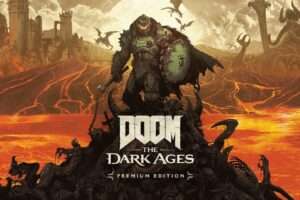The release of Fallout 76 was a contentious moment for the beloved post-apocalyptic RPG franchise. Unlike its predecessors, Fallout 76 was an online-only multiplayer game, a significant departure from the series’ established single-player focus. While the online format held promise for a unique cooperative experience, the game’s launch was marred by technical issues, content shortcomings, and a feeling of being a forced experiment on a cherished franchise. Let’s explore how Fallout 76’s struggles highlight the inherent challenges of online-only multiplayer titles, especially when established franchises take a drastic shift.
1. The Absence of a Compelling Narrative:
- Story by Proxy: Fallout games traditionally captivated players with their rich narratives and memorable characters. Fallout 76, lacking human NPCs due to its online focus, struggled to deliver a compelling story. Players pieced together the world’s narrative through environmental clues and holotapes, but it felt disjointed and impersonal.
- Focus on Live-Service Events: The emphasis shifted towards live-service events and player-created narratives. While this can be engaging for some, it alienated fans who cherished the single-player, story-driven experiences of past Fallout titles.
2. Technical Difficulties and Lack of Polish:
- Buggy Launch: Fallout 76 launched with a staggering number of bugs and glitches. These technical problems significantly hampered the gameplay experience, creating frustration and disappointment amongst players.
- Empty World Syndrome: The vast online world felt empty without the usual cast of non-playable characters (NPCs) that populate past Fallout games. The reliance on player interaction to create a lively world fell short, leaving many areas eerily devoid of life.
3. The Grind and Microtransactions:
- Repetitive Tasks: Fallout 76’s core gameplay loop often revolved around repetitive tasks like gathering resources and completing fetch quests. This monotonous grind quickly became tiresome for players.
- Monetization Misstep: The introduction of microtransactions into a full-priced game felt like a cash grab, especially considering the lack of content and polish at launch. This further eroded player trust and goodwill.

Fallout 76 as a Cautionary Tale for Online-Only Games:
The issues that plagued Fallout 76 serve as a cautionary tale for developers venturing into the online-only multiplayer space, particularly with established franchises:
- Respecting the Core Identity: While innovation is important, drastic changes to a franchise’s core gameplay identity can alienate existing fans. Fallout 76 strayed too far from the series’ established narrative-driven, single-player formula.
- Content and Polish are Paramount: Online-only titles require a constant stream of engaging content to retain players. Fallout 76 launched with a limited amount of content and was riddled with bugs, creating a poor first impression.
- Meaningful Narrative Integration: The absence of a well-crafted narrative can be detrimental in online-only games. Fallout 76 attempted to tell a story through environmental details, but it felt hollow compared to past entries.
While Fallout 76 has seen improvements since its rocky launch, it serves as a reminder of the challenges online-only titles face, especially when adapting beloved franchises. By staying true to a game’s core identity, delivering a polished experience, and weaving a captivating narrative, developers can create online-only titles that resonate with players and avoid a similar fallout.
















Add Comment